law
Latest
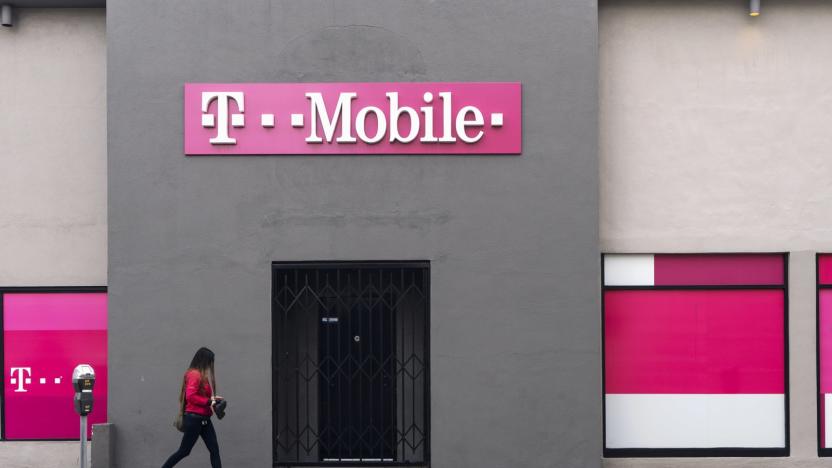
California ends opposition to T-Mobile and Sprint merger
New York isn't the only big state dropping its fight against T-Mobile's merger with Sprint. California Attorney General Xavier Becerra has dropped the state's challenge against the merger after reaching a settlement that theoretically addresses objections to the carrier buyout. The expanded T-Mobile will have to guarantee affordable plans in California for a minimum of five years, including a plan with 2GB of data for $25 per month. The network will also have to hold to plans from February 2019 for five years (two year longer than the FCC asked for) and give 10 million low-income households access to 100GB of free broadband per year, including a free mobile hotspot.
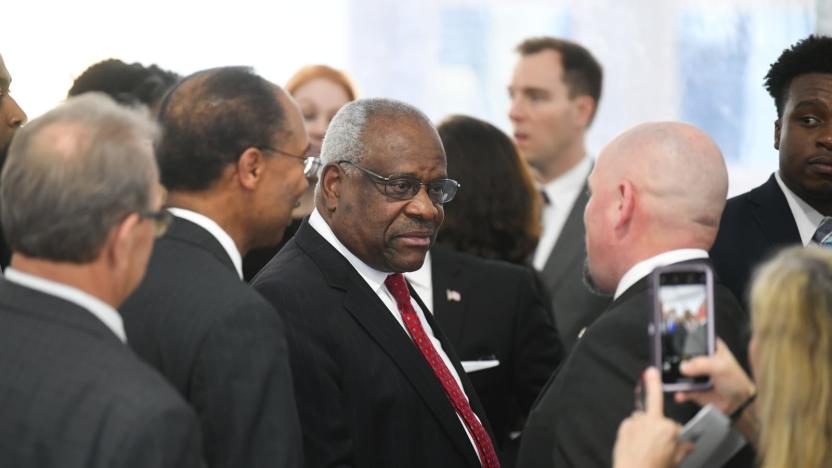
Clarence Thomas laments ruling that let FCC kill net neutrality
Supreme Court Justice Clarence Thomas doesn't have many fans among open internet advocates. His decision in the 2005 Brand X broadband case let the FCC classify internet service any way it liked as long as there was a justification, giving Ajit Pai's FCC the tools it needed to kill net neutrality. However, he appears to have had a change of heart. In the lone dissent on a case addressing the IRS' interpretation of American law, Thomas said he felt Brand X was "inconsistent" with the Constitution, the Administrative Procedure Act and other approaches to interpreting laws. He added that he would "revisit" his decision if he could.
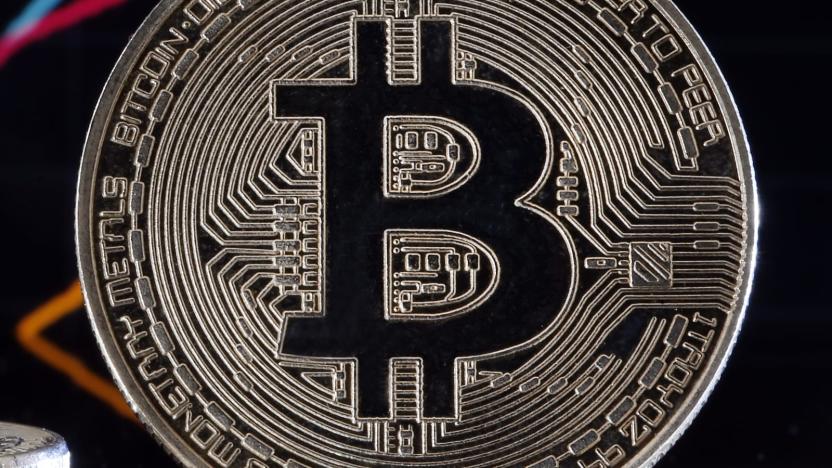
Ohio man charged for laundering $300 million through Bitcoin 'mixer'
American law enforcement just illustrated how important cryptocurrency has become in the criminal world. Federal agents have charged Ohio resident Larry Harmon for allegedly running a darknet-based Bitcoin "mixer" that laundered the equivalent of roughly $300 million for drug dealers and other crooks. Helix, as it was called while it ran between 2014 and 2017, reportedly let customers pay to send Bitcoin in a way that hid the true source. It operated with "brazenness," the IRS' Don Fort said. Helix supposedly partnered with AlphaBay to serve the darknet black market's customers, and advertised Helix on the Grams search engine (which Harmon apparently ran) as a way to hide deals from police.

T-Mobile and Sprint merger approved by federal judge
T-Mobile and Sprint's $26.5 billion merger is almost complete. Following months of delays and push back from high-profile authorities, a US district judge has ruled in the companies' favor, allowing them to move within one step of concluding a deal that promises to deploy 5G service to 97 percent of Americans within three years.

UK brings forward its ban on new petrol and diesel cars to 2035
The UK is bringing forward its ban on the sale of fossil fuel cars by five years. Originally, legislation stipulated that the sale of petrol and diesel would be banned by 2040. Now that date has been pulled forward to 2035, with Prime Minister Boris Johnson saying the ban would come into effect even earlier, if possible.

Hacker pleads guilty to stealing Nintendo secrets
A California man is about to face serious consequences for a string of crimes that include breaching a gaming industry giant. Palmdale resident Ryan Hernandez has pleaded guilty to federal charges of both hacking Nintendo systems (computer fraud and abuse) and possessing child pornography. Hernandez reportedly used phishing to swipe the credentials of a Nintendo worker in 2016 and used that to steal confidential info about the console maker and promptly leak that to the public. He even leaked details of the Switch before its March 2017 debut, according to court records. Moreover, he resumed hacking Nintendo systems in June 2018 despite the FBI catching him and eliciting a promise that he would stop.

UK proposes tougher security for smart home devices
The UK government plans to introduce a new law designed to improve the security standards of household products connected to the Internet of Things (IoT). The legislation stipulates that all consumer smart devices sold in the UK -- such as smart cameras and TVs, wearable health trackers and connected appliances -- adhere to three specific requirements.
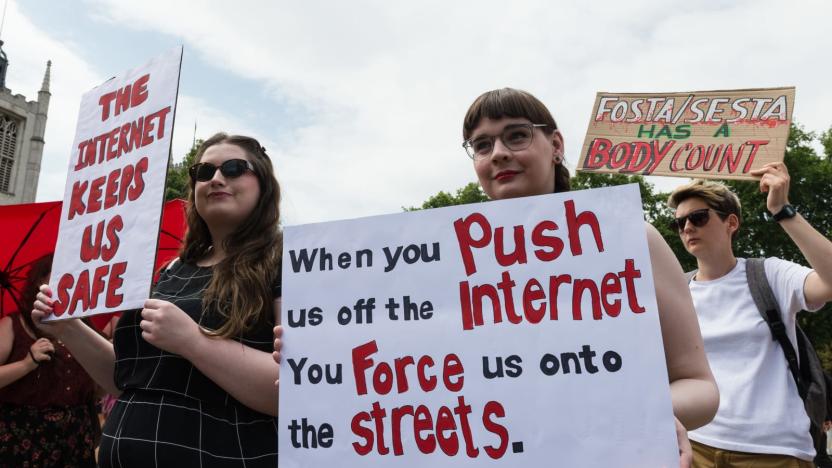
Court reinstates lawsuit challenging online sex trafficking law
Civil liberty advocates are getting a second chance to challenge the legitimacy of the FOSTA-SESTA online sex trafficking law. An appeals court has reinstated a lawsuit claiming that FOSTA-SESTA violates First Amendment protections for free speech. While a judge had previously tossed the lawsuit on the grounds that plaintiffs Alex Andrews and Eric Koszyk didn't face a credible threat of prosecution, the appeals court disagreed. It determined that Andrews faced a real threat due to her sex worker support site, while FOSTA may have harmed Koszyk by denying him the ability to offer therapeutic massages anywhere on Craigslist.

Uber experiment lets California drivers set their own fares
Uber is testing another new feature in what is presumably a bid to help mitigate the restrictions of Assembly Bill 5, which requires the company to treat its drivers as employees, not independent contractors. Some drivers in California will now have the ability to set their own fares, which could be up to five times the amount normally set by Uber.

Uber is leaving Colombia after court ruling
Uber has once again been kicked out of an entire country. The ridesharing firm is shutting down operations in Colombia on February 1st after a December court ruling that it violated transportation laws. It intends to appeal the ruling, which it called "arbitrary" and a violation of a free trade deal that protects American companies' subsidiaries. For now, though, this will leave about 88,000 drivers (and 2 million customers) resorting to alternatives.

President Trump signs anti-robocall TRACED Act into law
A key bill to curb the robocall scourge is now the law of the land. President Trump has signed the TRACED Act, toughening the punishments for illegal robocalls and accelerating telecoms' efforts to block spam. Fines for robocalls now reach up to $10,000 per illegal call (and don't require a warning), and carriers must implement call authentication (already in use) to help prevent spoofing. The FCC has work to do, too -- it'll have to set rules determining when networks can block calls, and to prevent unauthenticated calls and texts from reaching phone subscribers.
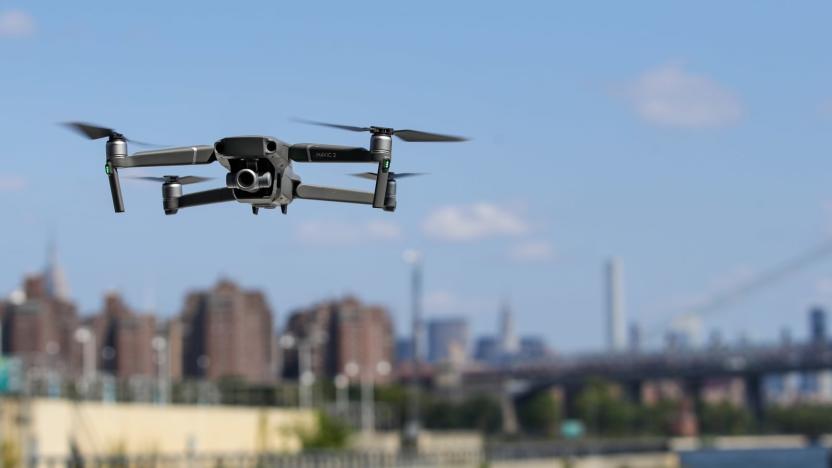
Proposed NYC law would require drone inspections for building complaints
Drones could soon be key to keeping New Yorkers safe from crumbling architecture. Members of the New York City Council have proposed legislation that would require drone inspections within 48 hours of a complaint or confirmed violation. A robotic vehicle (not the Mavic 2 Pro pictured) would use infrared and a pair of conventional cameras to both look for the telltale temperature changes of cracks and inspect roof conditions. The intended drones would cost $2,500 each, but the proposal would reduce costs by offloading the inspections to private companies that would charge building owners.

Three people sentenced for running $100 million malware crime network
The takedown of a massive malware crime network is now leading to consequences for some of its alleged participants. The US and the country of Georgia have sentenced three people for their roles in using GozNym malware to steal upwards of $100 million. Krasimir Nikolov was sentenced in the US to the 39 months he'd served in prison for serving as an "account takeover specialist," and will be retirned to Bulgaria. Two others, the "primary organizer" Alexander Konolov and his assistant Marat Kazandjian, have also been prosecuted in Georgia for their roles. The US Justice Department didn't detail their punishment.

San Francisco loosens facial recognition ban to allow newer iPhones
San Francisco is learning first-hand about the risks of blanket bans on facial recognition. City supervisors have voted to amend a ban on facial recognition in local government to allow the use of FaceID-equipped iPhones and other devices where the technology is included, but other features are considered vital and don't have alternatives. Workers aren't allowed to use the facial recognition tech (they'll have to enter passcodes on iPhones, for example), but they don't have to give up a modern handset just to take calls and answer emails.

Congress is raising the minimum smoking and vaping age to 21
Congress just raised the legal age to smoke or vape to 21, BuzzFeed News reports. The law will go into effect sometime next year, and it will cover all nicotine products.
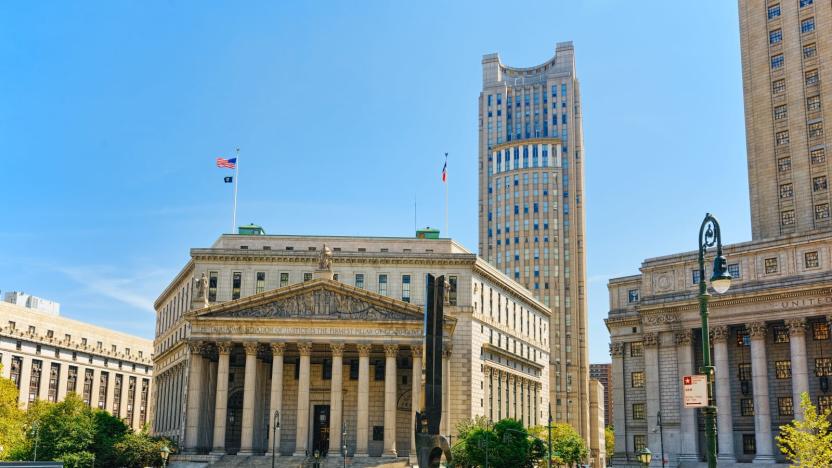
Court says data swept up by the NSA is protected by the Fourth Amendment
An appeals court may have just shaped how the US treats the NSA's bulk data collection. The Second Circuit Court of Appeals has ruled that American communications scooped up under the Foreign Intelligence Surveillance Act's Section 702 and PRISM is protected by Fourth Amendment rights baring unreasonable searches and seizures. Judges found that the "vast majority" of the evidence collected in a terrorism case against Agron Hasbajrami was permissible under the Fourth Amendment, but that the querying that data "could violate" the amendment -- and thus that it was fair to challenge the data use on constitutional grounds. It also believed that the accidental collection of Americans' data raised "novel constitutional questions" that could be answered later.

SEC charges IT administrator over $7 million insider trading ring
Insider trading among tech companies is nothing new, but some of these unscrupulous workers are more 'successful' than others. The SEC has charged former Palo Alto Networks IT administrator Janardhan Nellore and four friends with conducting insider trading that earned the group over $7 million between 2015 and 2018. Allegedly, Nellore exploited his "IT credentials and work contacts" to access his company's financial data and make illegal share trades. The group was also aware it might be tracked -- Nellore reportedly had the group use variants of the codeword "baby" in emails and texts to refer to the company stock, and the friends made small transactions to avoid tipping off the bank.

Two men plead guilty to running large illegal streaming sites
It didn't take long for federal officials to convict people operating two of the largest pirate streaming sites in the US. Darryl Polo and Luis Villarino have pleaded guilty to copyright infringement charges (and money laundering for Polo) for operating iStreamItAll and Jetflicks, streaming sites that each offered tens of thousands of bootlegged TV episodes and movies. Both Polo and Villarino admitted to using automated software and scripts to harvest pirated videos and make them available as streams and downloads across a variety of platforms -- effectively, they helped run Netflix-like services for ill-gotten goods.

Regulators are the only ones who can save us from distracted drivers
I ride my trusty Vespa scooter all around San Francisco. In the Bay Area, it's more convenient for getting around than a car, and I can park almost anywhere. Riding on two wheels places you above most drivers and makes you hyperaware of others on the road, and what I see more often than not terrifies me. Most of you are on your phones when you should be driving. It's time for automakers and the US regulatory agency, the National Highway Traffic Safety Administration (NHTSA), to do something about it.

Putin signs law requiring Russian apps on smartphones, TVs and PCs
Russian President Vladimir Putin has signed legislation that bans the sale of smartphones, computers and Smart TVs without Russian apps pre-installed. The law will come into force on July 1st of next year, but before that, the government will create a list of Russian applications that must be pre-installed on various devices, according to Reuters.




